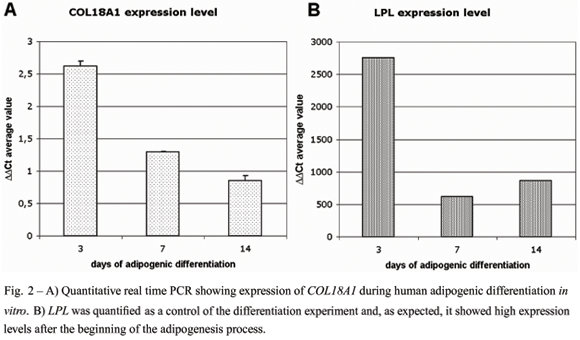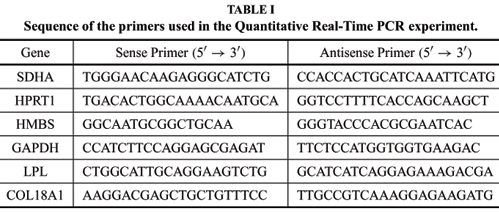Collagen XVIII can generate two fragments, NC11-728 containing a frizzled motif which possibly acts in Wnt signaling and Endostatin, which is cleaved from the NC1 and is a potent inhibitor of angiogenesis. Collagen XVIII and Wnt signaling have recently been associated with adipogenic differentiation and obesity in some animal models, but not in humans. In the present report, we have shown that COL18A1 expression increases during human adipogenic differentiation. We also tested if polymorphisms in the Frizzled (c.1136C>T; Thr379Met) and Endostatin (c.4349G>A; Asp1437Asn) regions contribute towards susceptibility to obesity in patients with type 2 diabetes (113 obese, BMI =30; 232 non-obese, BMI < 30) of European ancestry. No evidence of association was observed between the allele c.4349G>A and obesity, but we observed a significantly higher frequency of homozygotes c.1136TT in obese (19.5%) than in non-obese individuals (10.9%) [P = 0.02; OR = 2.0 (95%CI: 1.07-3.73)], suggesting that the allele c.1136T is associated to obesity in a recessive model. This genotype, after controlling for cholesterol, LDL cholesterol, and triglycerides, was independently associated with obesity (P = 0.048), and increases the chance of obesity in 2.8 times. Therefore, our data suggest the involvement of collagen XVIII in human adipogenesis and susceptibility to obesity.
COL18A1; obesity; adipogenesis; endostatin; frizzled





